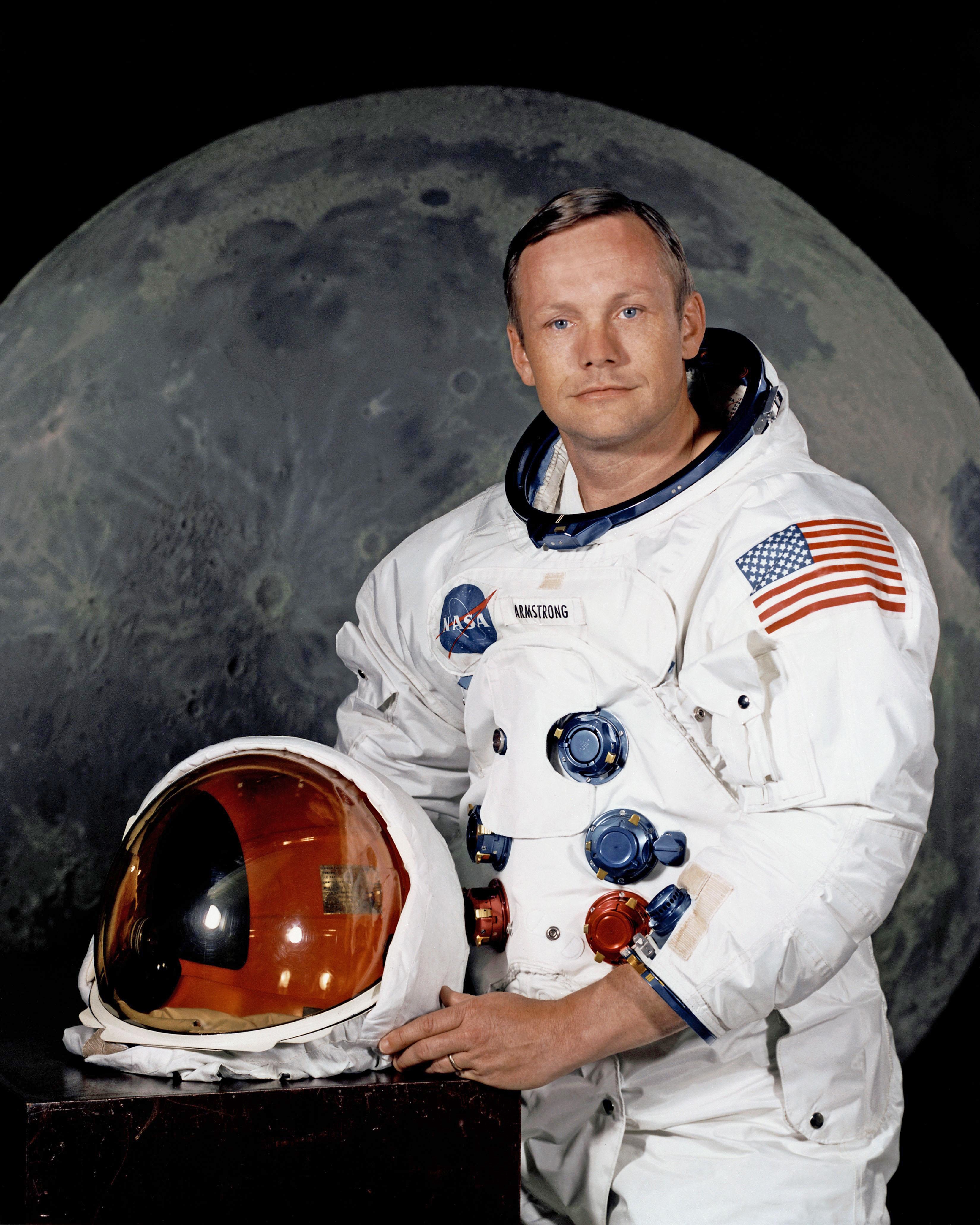Neil Alden Armstrong was an American astronaut and aeronautical engineer and the first person to walk on the Moon. He was also a naval aviator, test pilot, and university professor.
A graduate of Purdue University, Armstrong studied aeronautical engineering; his college tuition was paid for by the U.S. Navy under the Holloway Plan. He became a midshipman in 1949 and a naval aviator the following year. He saw action in the Korean War, flying the Grumman F9F Panther from the aircraft carrier USS Essex. In September 1951, while making a low bombing run, Armstrong's aircraft was damaged when it collided with an anti-aircraft cable which cut off a large portion of one wing. Armstrong was forced to bail out. After the war, he completed his bachelor's degree at Purdue and became a test pilot at the National Advisory Committee for Aeronautics High-Speed Flight Station at Edwards Air Force Base in California. He was the project pilot on Century Series fighters and flew the North American X-15 seven times. He was also a participant in the U.S. Air Force's Man in Space Soonest and X-20 Dyna-Soar human spaceflight programs.
Armstrong joined the NASA Astronaut Corps in the second group, which was selected in 1962. He made his first spaceflight as command pilot of Gemini 8 in March 1966, becoming NASA's first civilian astronaut to fly in space. During this mission with pilot David Scott, he performed the first docking of two spacecraft; the mission was aborted after Armstrong used some of his re-entry control fuel to stabilize a dangerous roll caused by a stuck thruster. During training for Armstrong's second and last spaceflight as commander of Apollo 11, he had to eject from the Lunar Landing Research Vehicle moments before a crash.
On July 20, 1969, Armstrong and Apollo 11 Lunar Module pilot Buzz Aldrin became the first people to land on the Moon, and the next day they spent two and a half hours outside the spacecraft while Michael Collins remained in lunar orbit in the mission's command module . When Armstrong stepped onto the lunar surface, he famously said: "That's one small step for [a] man, one giant leap for mankind." Along with Collins and Aldrin, Armstrong was awarded the Presidential Medal of Freedom by President Richard Nixon. President Jimmy Carter presented Armstrong with the Congressional Space Medal of Honor in 1978, and Armstrong and his former crewmates received a Congressional Gold Medal in 2009.
After he resigned from NASA in 1971, Armstrong taught in the Department of Aerospace Engineering at the University of Cincinnati until 1979. He served on the Apollo 13 accident investigation and on the Rogers Commission, which investigated the Space Shuttle Challenger disaster. He acted as a spokesman for several businesses and appeared in advertising for the automotive brand Chrysler starting in January 1979.
Wikipedia
✵
5. August 1930 – 25. August 2012
•
Other names
Neil Alden Armstrong

